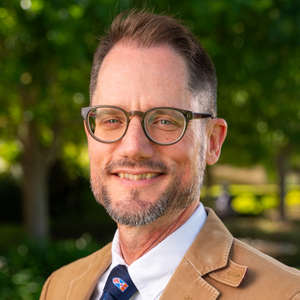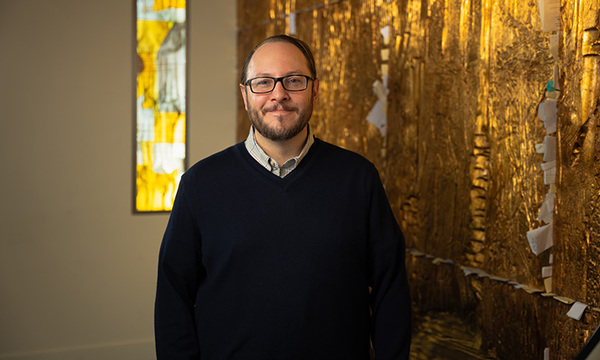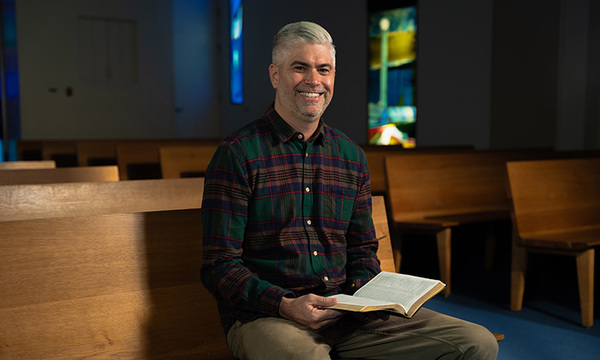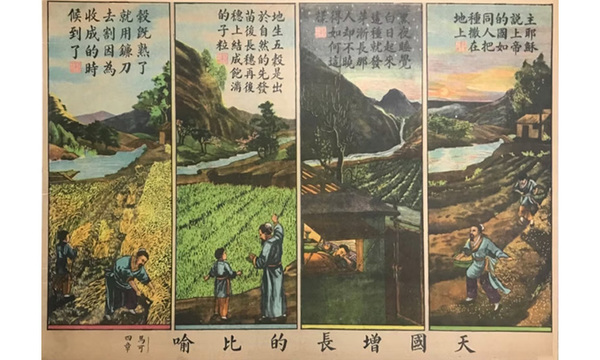While seminary graduates frequently express gratitude for their education, most also have a list of items colloquially entitled “Things Seminary Didn’t Teach Me!” The latest example we have seen is whether or not to celebrate the Lord’s Supper while churches are not able to meet together physically. Can a church celebrate communion via video conference? Churches have been divided on this, as some have decided to wait on having communion until the church body is physically back together again while others are having some form of virtual communion.
Just as an example, here are a few thoughts on the topic based on the fields of study that one goes through in seminary. We hope that this not only helps spark conversation about this particular issue but also reminds us of the importance of a broad seminary education.
Old Testament Studies Perspective – Charlie Trimm
The Passover was a major event in the sacred calendar that was to be celebrated on the 14th day of the first month (Lev 23:5). However, on at least two occasions it was celebrated a month late. In the first case, Moses allowed those who were unclean on that day to celebrate it together a month later (Num 9:6–13). Much later, during Hezekiah’s reform, not enough priests were consecrated to properly celebrate Passover, so the entire nation celebrated it a month later (2 Chronicles 30). While obviously not the same as a pandemic, they bear enough similarity to make me think that it is more important to wait and properly celebrate the festival than to celebrate it earlier in a less than ideal manner.
New Testament Studies Perspective – Darian Lockett
The New Testament teaches that on the night Jesus was betrayed, he instituted the Lord’s Supper — giving the Passover meal fuller meaning (Luke 22:19–20). Paul instructs the Corinthians to “clean out the old leaven so that you may be a new unleavened batch, as you are. For Christ our Passover lamb has been sacrificed. Therefore, let us observe the feast. … ” (1 Cor. 5:7–8). He goes on to teach the church how to observe the Lord’s Supper in chapter 11. No fewer than five times Paul mentions the church celebrating the Lord’s Supper when you all “come together as a church” (1 Cor. 11:17, 18, 20, 33, 34).
The reason the gathered community had to come together is at least twofold. First, Paul warns that when eating and drinking a Christian must not do so in an unworthy manner, one should not fail to “discern/recognize the body” (1 Cor. 11:29). Second, Paul teaches that the sharing in the cup and the bread is sharing in the blood and body of Christ. He insists, “Because there is one bread, we who are many are one body, since all of us share the one bread” (1 Cor. 10:17). Even when symbolic representation of one loaf is not preserved in the strictest sense (there might be too many people to all eat from the same loaf, or some might need a gluten free option), partaking of one bread together is an important sign pointing to the reality of our unity as one body.
Theological Studies Perspective – Uche Anizor
Darian’s thoughts sum up the approach I would take. But here are some further reflections. A lot of this turns on how much we define the church as a physical, spatial, gathered community. As much as we might be thankful for technology that enables forms of social engagement and connection, to meet on Zoom is not to gather in the truest sense. How would taking it “together” via some (even synchronous) online vehicle differ significantly from families doing the Lord’s Supper at home before coming to church, or whenever they’d like? If I were overseas, and my church family in the U.S. was eating the Lord’s Supper, would I be eating the meal with them if I chose to have it at precisely the same time they are? It defies the whole idea of eating together. We are not eating together. So, I think it’s perfectly OK and preferable to delay its observance until a better time.
Indeed, the time of delayed fellowship reminds us of the hope we always have of the new creation in the future...
In sum, this study shows how the different areas of study in a seminary education can provide help in a variety of different unusual situations. The lines of thought described above lead the three of us to conclude that we should not celebrate communion virtually. Instead, we should wait in hope for the time when the church gathers together again and we can celebrate as the reunited body of Christ with the Lord’s Supper. Indeed, the time of delayed fellowship reminds us of the hope we always have of the new creation in the future, when we can celebrate perfect fellowship with God and his people.
This adapted article was originally posted on April 24, 2020, on The Good Book Blog.
Read more at thegoodbookblog.com.
 Biola University
Biola University




